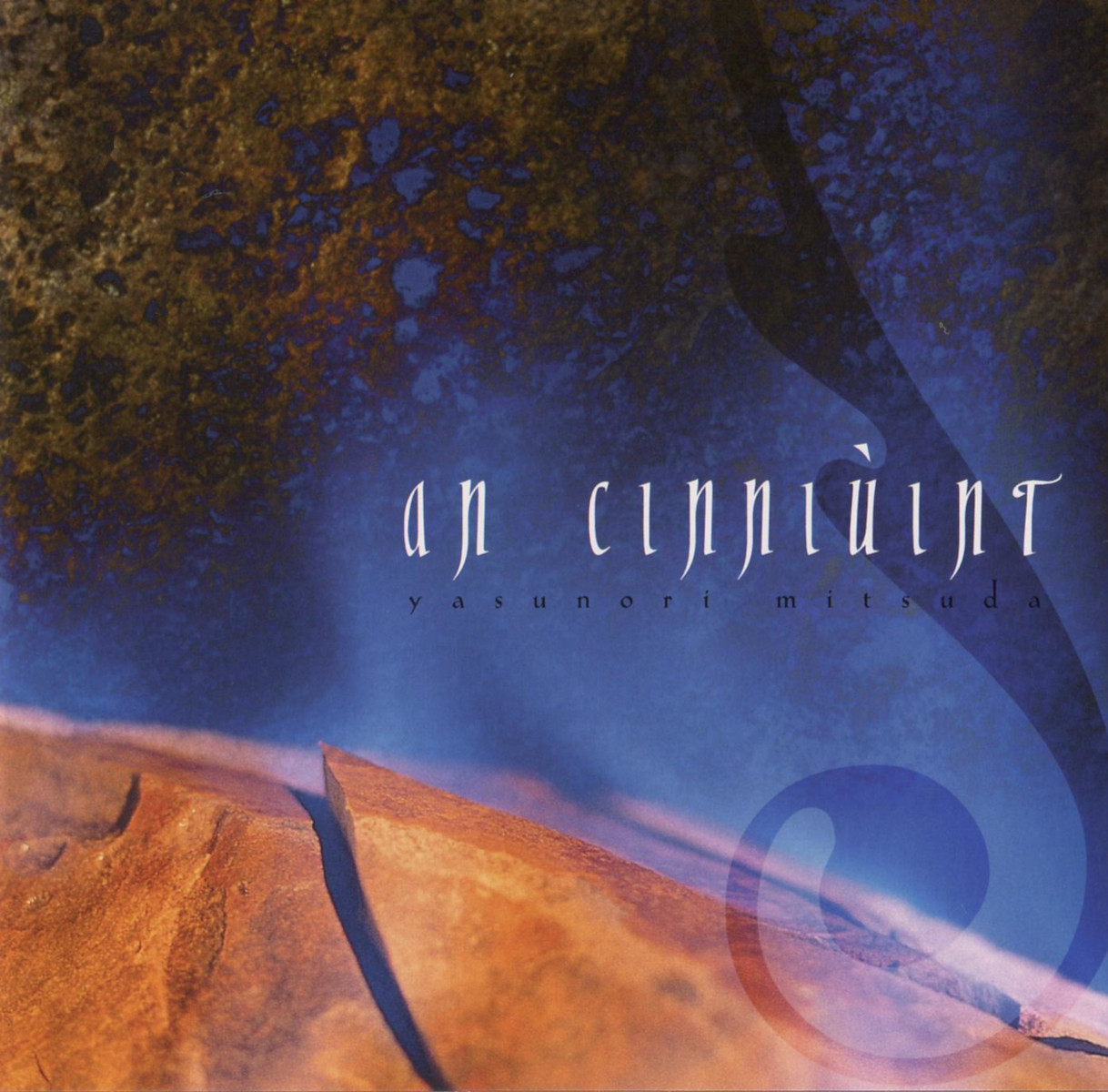A few months back, I was having a discussion with Lucy (Chudah) about favorite composers. I said that, initially, I loved Uematsu best because of his Final Fantasy work, but that recently I favored Mitsuda over Uematsu because his compositions touched me deeply. However, with an cinniùint, the OST for Tsugunai, Yasunori Mitsuda is no longer my favorite game music composer. Why? The answer may be different than you think.
An cinniùint is, in a word, derivative. The Tsugunai soundtrack is, for the most part, directly inspired by Mitsuda’s other works, Chrono Cross and Xenogears, with a bit of Chrono Trigger thrown in for good measure. Now I can’t really fault Mitsuda for this: he’s staying true to his style. However, his refusal to deviate from that style results in a slightly bland composition this time around.
A prime example of the repetitiveness is “Early Afternoon in the Village,” a track that could replace Aruni village’s theme or Fei’s Village’s theme and nobody would bat an eye. “Battle Level 1,” while a nice battle theme, is obviously inspired in part by the Dajil theme from Xenogears with a slight disco flair thrown in. And “Find Him!” could substitute for Chuchu’s theme from Xenogears as well. It’s a veritable cornucopia of revisited, rearranged Mitsuda music.
Most fans of Mitsuda’s work will automatically assume that this is a good thing. Not a lot of people, including myself, enjoyed some of the innovation taken by Uematsu in FFVII and IX, but at least he was trying. An cinniùint‘s tracks are simply less inspired than those from Xenogears and Chrono Cross, and it’s not just because I haven’t played the game. The tracks don’t touch my soul like “Star of Tears” or “People Seized with Life,” and with that emotion being the biggest draw of Mitsuda’s work, I just can’t place him head and shoulders above other composers right now.
This is not to say that this is a BAD album; on the contrary, it ranks above most of the current RPG soundtracks out there right now. And not all of the tracks are rehashed Mitsuda fare. “Black Shadow” is a perfect example of this originality, as it’s dark and yet not quite evil. It’s a twist on an ominous theme that I haven’t seen in Mitsuda’s work before. Though similarly diverse, “Shadow of Darkness” hits on the other extreme of being terribly ominous and tortured, with an effect that sounds like the turning of a giant clock’s gears, and some really freaky lyrics being chanted. Mitsuda definitely got the whole “creepy” thing right here.
The only track I can’t make heads or tails of is the ending theme, “All is Redeemed.” I know it’s not as powerful as either “Small of Two Pieces” or “The Jewel that Can’t be Stolen,” but I still enjoyed it somewhat. Perhaps this is one of those tracks, much like “Grief” that I’d have to play the game in order to get the full effect.
The bottom line, though, is this a good album? Yes, this is a good album. Is it another Chrono Cross or Xenogears? No, it’s not. Will Mitsuda fans enjoy this CD? Yes. Will non-Mitsuda fans like it? Probably not, but only if they hate Mitsuda’s work. For all the rest of you who haven’t heard his stuff, it’d be a great idea to pick up this heavily Celtic-inspired album, as it’s quite good.




